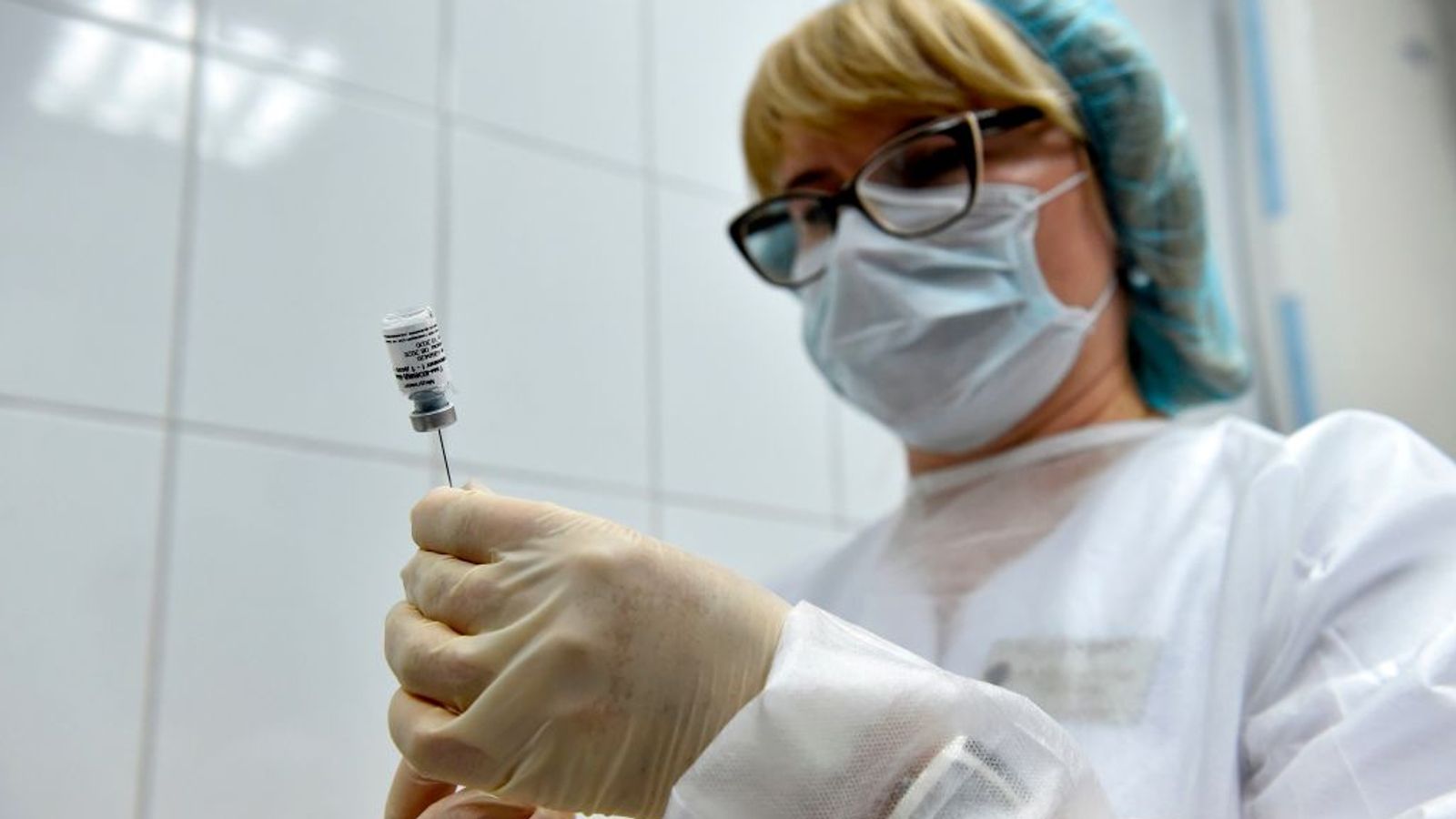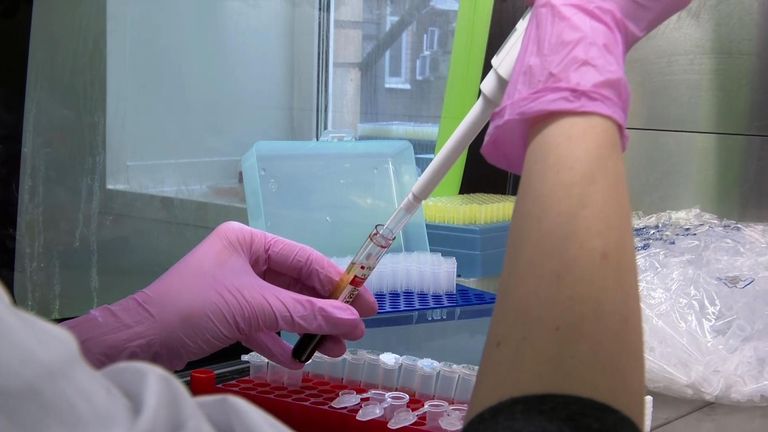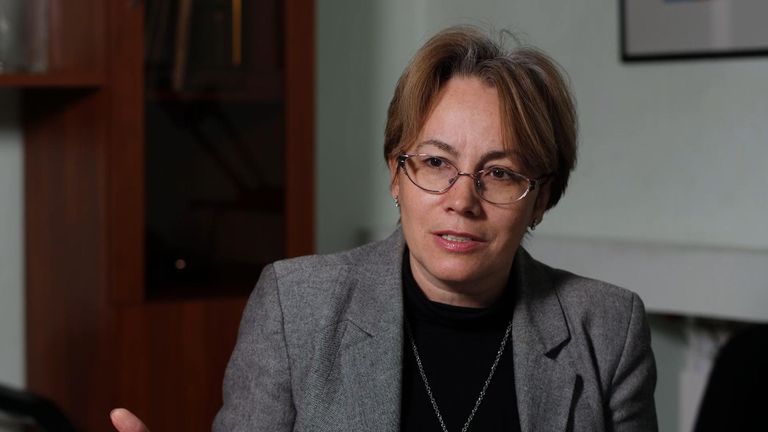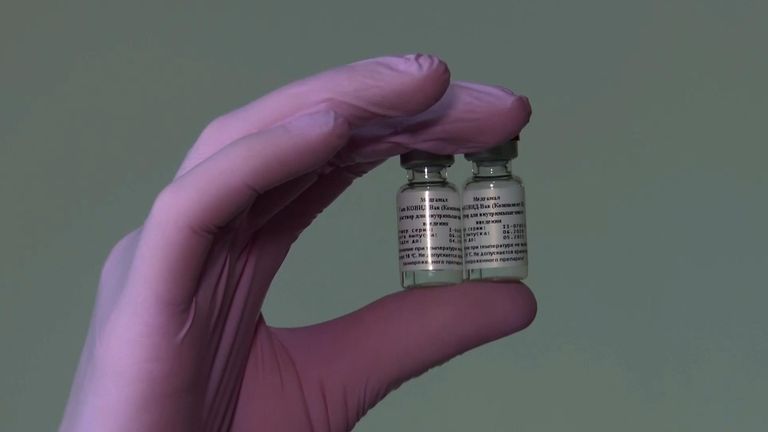Russia was the first country to approve a coronavirus vaccine – and it also claims its vaccine is the best.
Last week, two days after US drugs giant Pfizer announced that the vaccine it has developed alongside Germany’s BioNTech was 90% effective in protecting people against the virus, the Russian Direct Investment Fund (RDIF) which champions Russia’s Sputnik V vaccine, issued a statement suggesting that its vaccine had a 92% efficacy rate.
This first Russian vaccine produced by Moscow’s Gamalaya Institute is named after Sputnik, the first satellite into space, launched by the Soviets in 1957.
The website says the name is a nod to the reinvigoration of space research after that first “Sputnik moment”, but Sputnik’s launch also marked the start of the Cold War space race.
The Soviet spirit then was archly competitive rather than collaborative and that does not appear to have changed.
Of course it’s a “rat race”, says Svetlana Zavidova, executive director at Russia’s association of clinical trials organisations.
She said: “When our president announced the registration on 1 August, his first words were about trying this vaccine on his daughter. Before he never mentioned his daughters.”
The Russian president rarely speaks publicly about his family.
The Gamalaya Institute says it drew its analysis on the basis of 20 confirmed cases of COVID-19 among trial participants, divided between those given one or both shots of the vaccine and those given a placebo.
In phase 3 trials of 40,000 participants, 16,000 had received both shots.
The Pfizer interim analysis was based on 94 confirmed cases among its participants. The company said it had decided together with the US Food and Drug Administration (FDA) to drop a first planned analysis based on just 32 cases.
“It’s really strange to do the analysis on just 20 cases,” Ms Zavidova said.
“How can we draw conclusions about 92% of efficacy, based on that? Maybe they looked at Pfizer’s results and just added 2%.”
:: Subscribe to the Daily podcast on Apple Podcasts, Google Podcasts, Spotify, Spreaker
Her scepticism is reflected in the Russian public more broadly.
Recent surveys from the independent Levada poll suggest a growing hesitancy around the Russian vaccines, with distrust and doubt being the predominant reaction to reports about the appearance of the Russian-made vaccine in a late August survey.
Russia has also vaccinated 10,000 medics and other high-risk groups with Sputnik V.
On the day RDIF published its interim analysis, three medics who had received the first dose of the vaccine were reported as having contracted the virus in Siberia.
The Sputnik V vaccine has two components. Patients are given two injections, the second 21 days after the first. They are considered vaccinated three weeks after the second injection, the Russian Ministry of Health has said.
If Sputnik V’s high efficacy is borne out through the rest of the phase 3 trial period, then it has considerable advantages over the Pfizer/BioNTech vaccine in terms of logistics.
The Pfizer vaccine requires storage at minus 70 degrees, whereas Sputnik V can be maintained at minus 18 degrees, making it easier to store and distribute.
Even the president though has admitted that scaling up production for millions of doses of vaccine remains a problem in Russia due to equipment shortages.
As a result, Russia has had to delay the roll-out of mass vaccination.
:: Subscribe to the Daily podcast on Apple Podcasts, Google Podcasts, Spotify, Spreaker
RDIF recently announced a deal with South Korea to manufacture 150 million doses of the vaccine for global distribution.
Russia has so far registered two vaccines with a third due soon.
“The president has assessed very positively both the Sputnik and Vector product,” said Kremlin spokesman Dmitry Peskov on Friday.
“He also has big expectations for the third vaccine. He will make an announcement when he gets vaccinated himself.”




